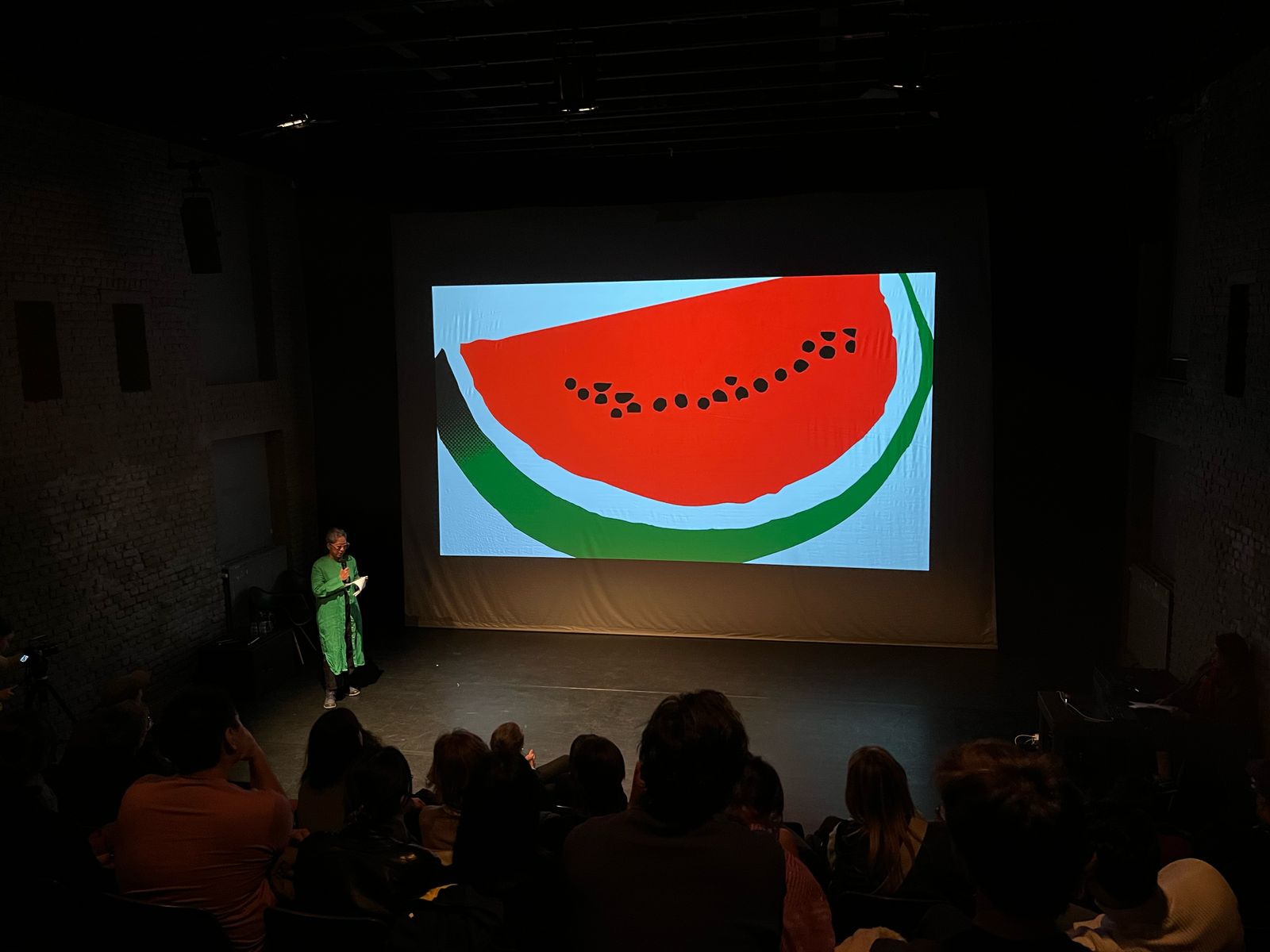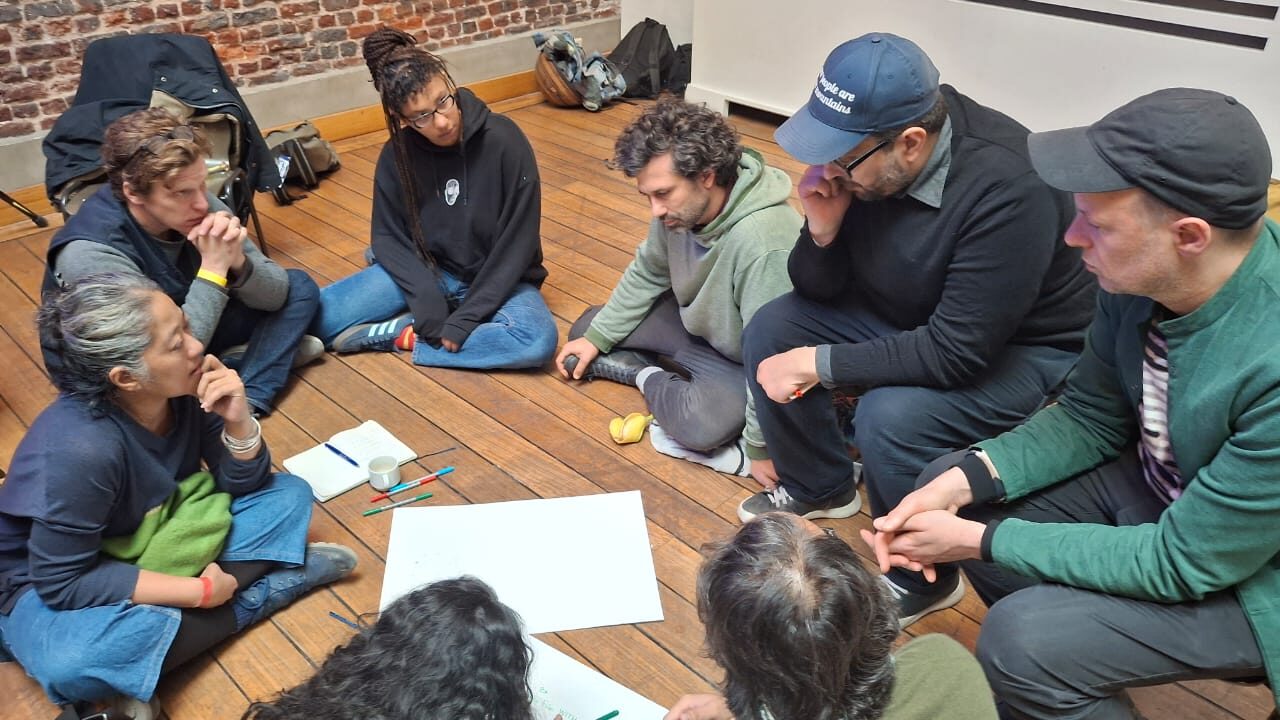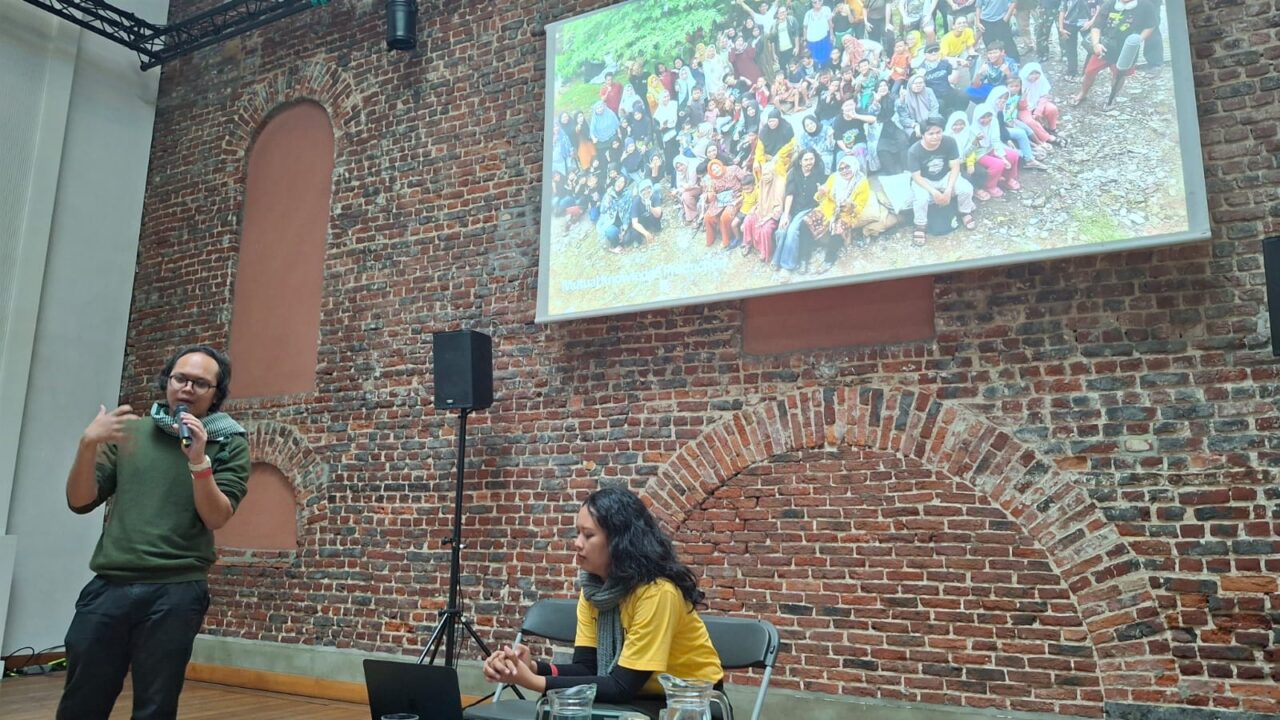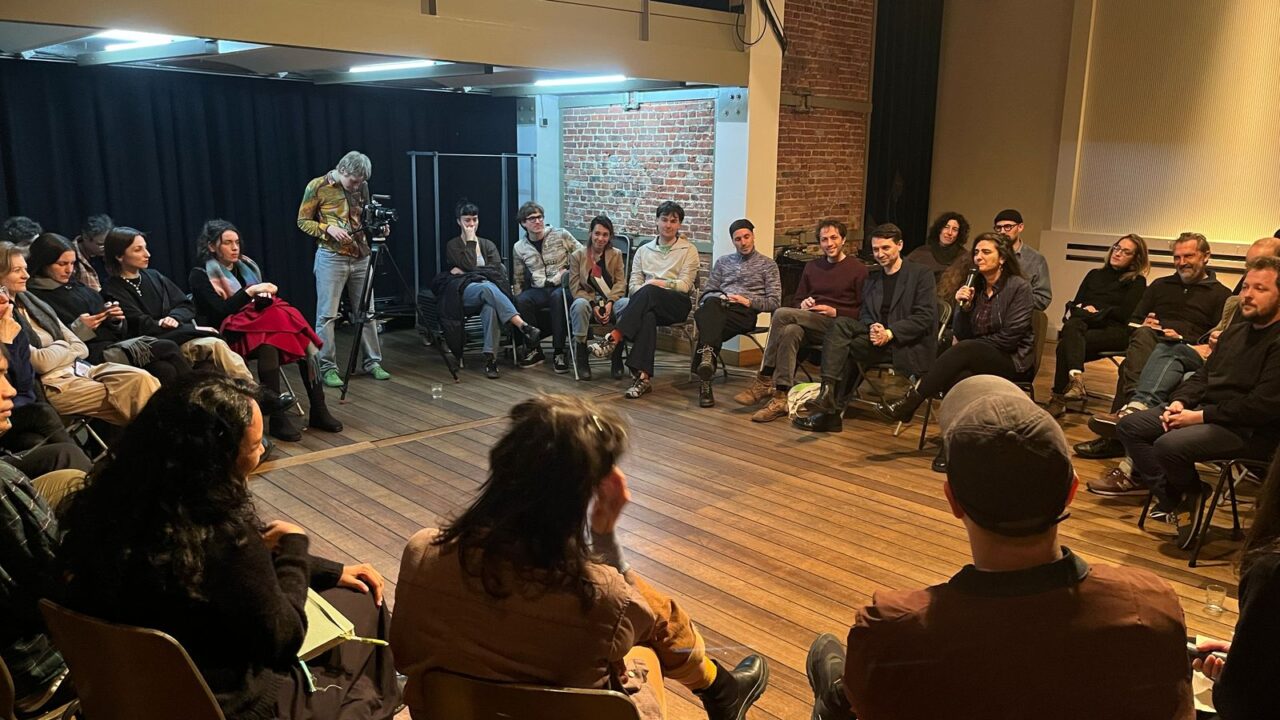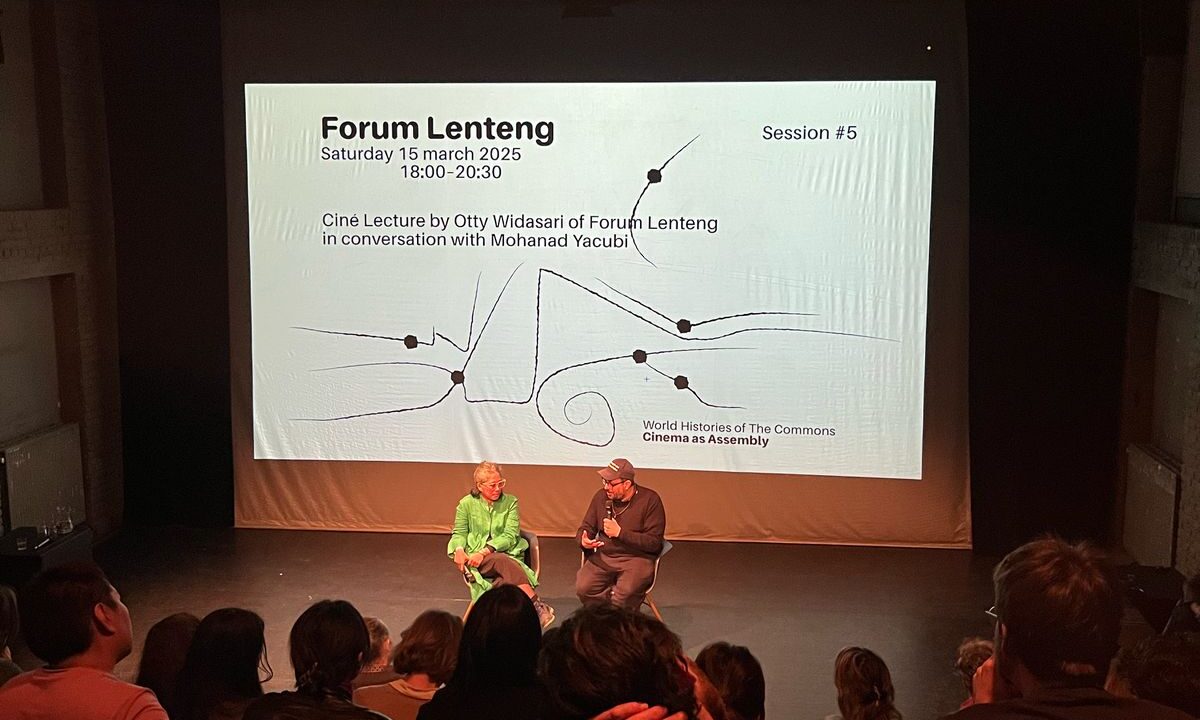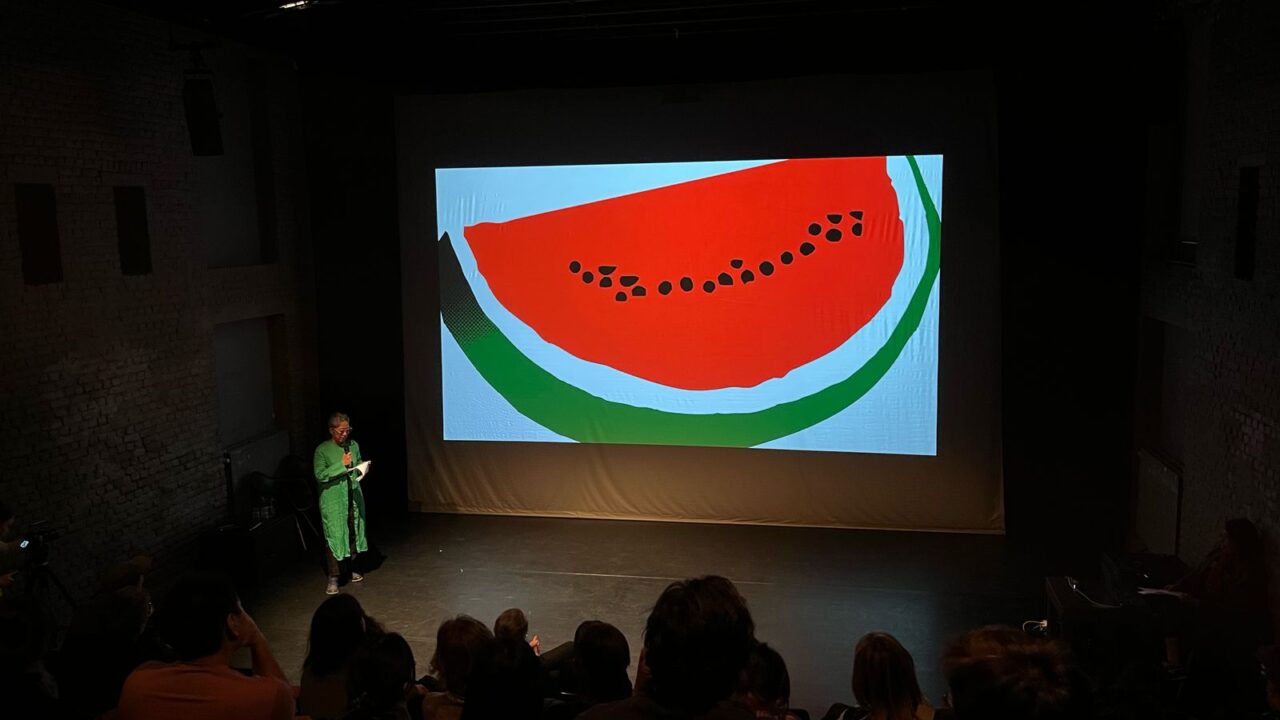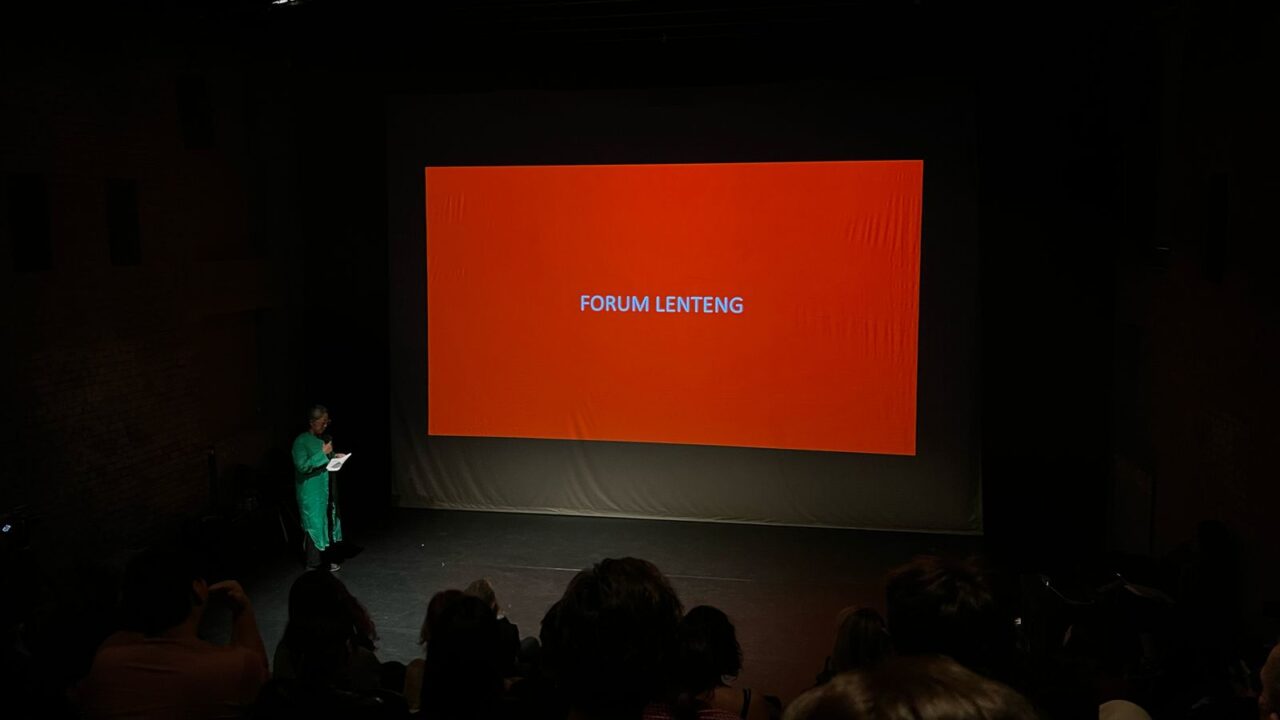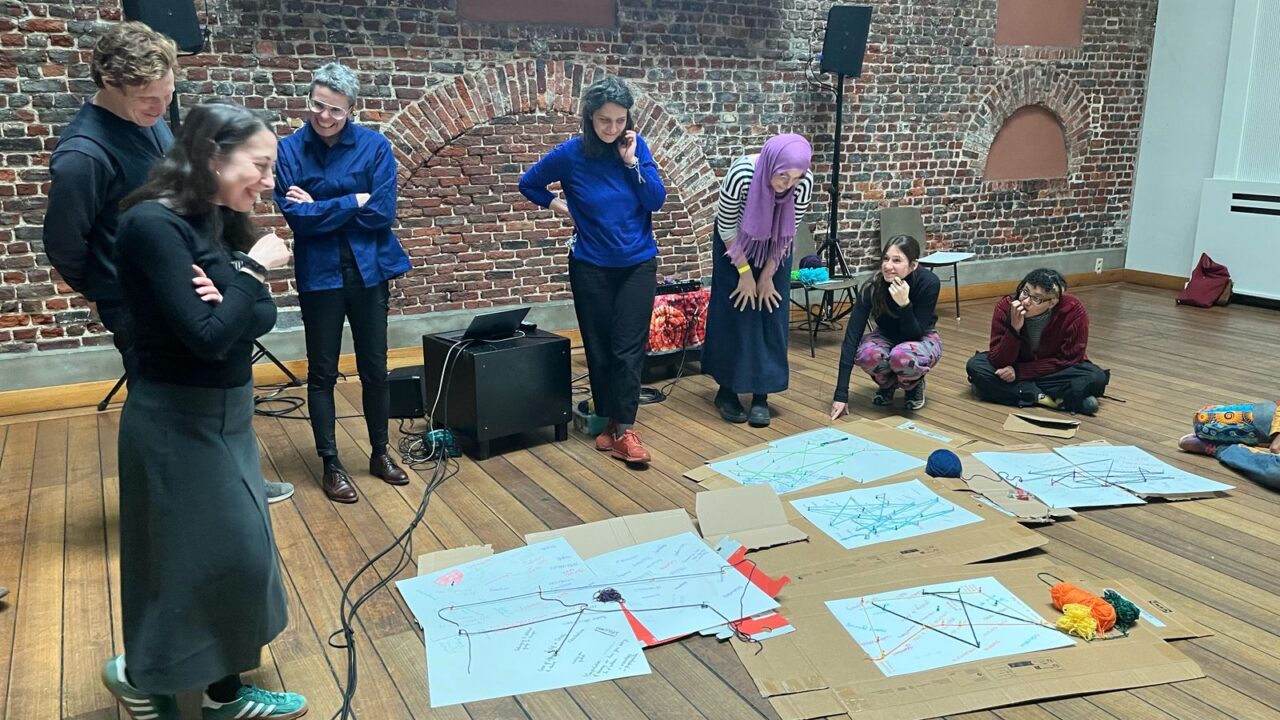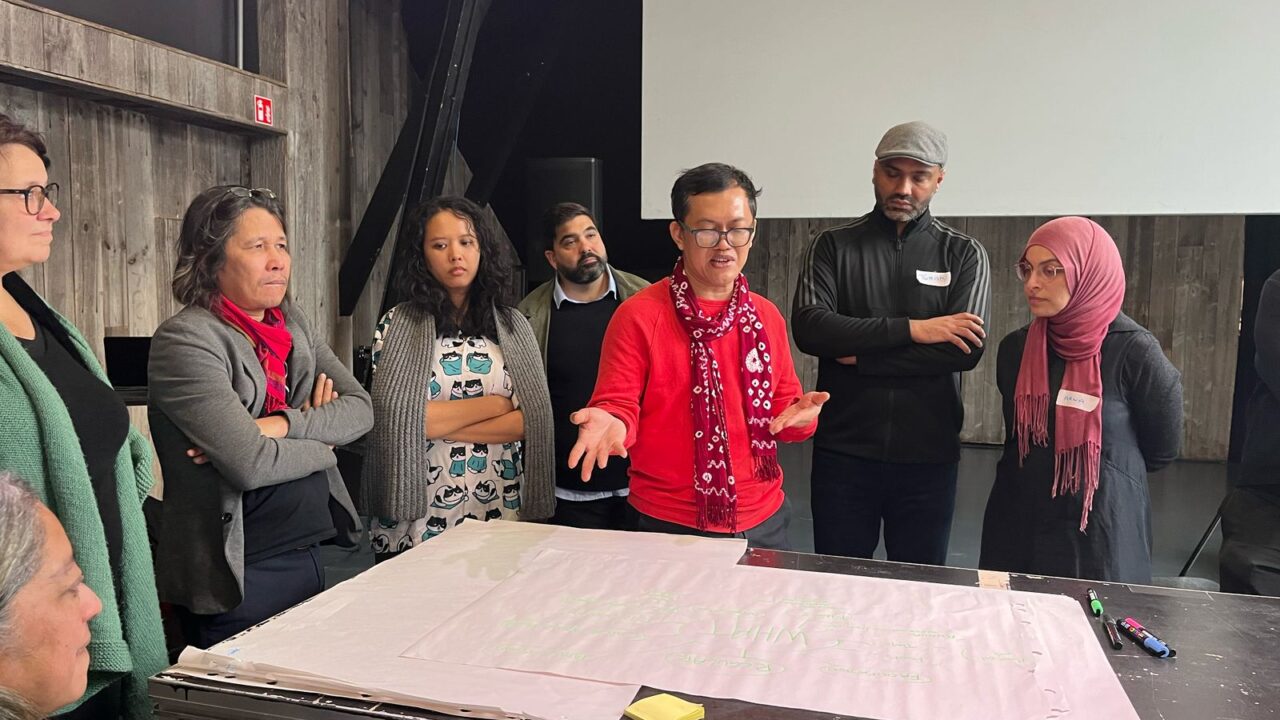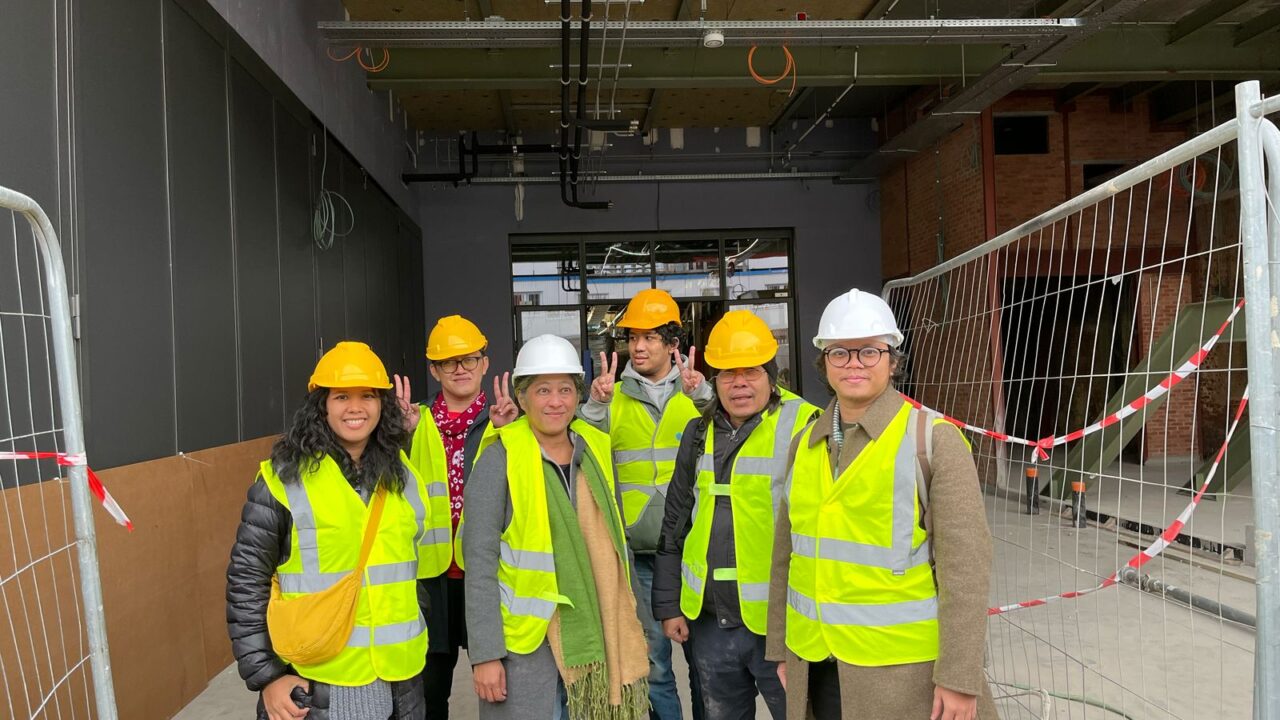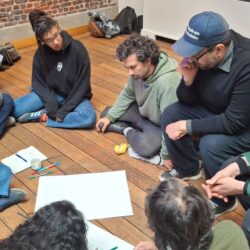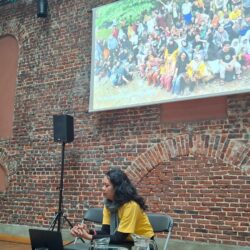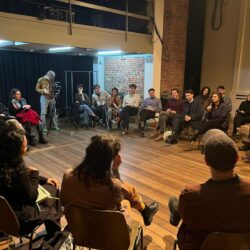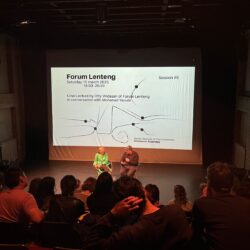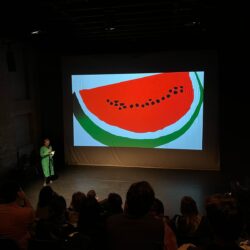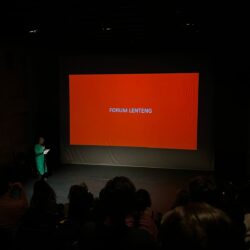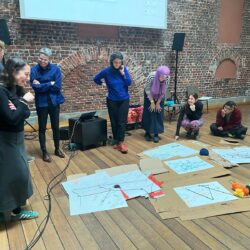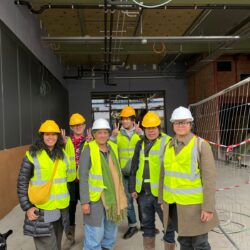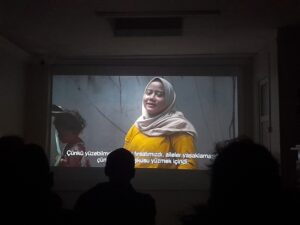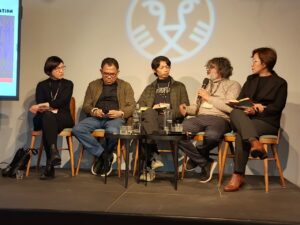Brussels, Belgium – From March 10 to 24, 2025, Forum Lenteng participated in a series of events in Belgium that reaffirmed cinema’s role as a medium for global solidarity and decolonial practice. From discussions at Cinema as Assembly to lectures at KASK Ghent and film screenings at Netwerk Aalst, this collaboration offered critical perspectives on how cinema can respond to crises of authoritarianism, fascism, and global inequality. The main event took place at Kaaistudios, Brussels (March 13–15), as part of the Cinema as Assembly program initiated by Robin Vanbesien, Subversive Film, and Grégory Castéra. Forum Lenteng shared the stage with collectives from Palestine, Lebanon, Guinea-Bissau, and Belgium to explore pressing questions: How can contemporary cinematic practices support political imaginations oriented toward social justice and anti-fascist liberation? During the Collective Study Session (March 13), Alifah Melisa and Luthfan Nur Rochman presented Forum Lenteng’s alternative curriculum through platforms like ARKIPEL, Milisifilem Collective, and the development of Forum Lenteng’s discourse studies. The presentation highlighted the collective’s non-institutional approach to media literacy, including archival work connecting the history of the Asia-Africa Conference (1955) with progressive cinema movements in the Global South. The climax was Otty Widasari’s performative lecture (March 15), reflecting on 21 years of Forum Lenteng’s engagement with contemporary global geopolitics through study groups. Otty began with the story of an Indonesian journalist reciting José Rizal’s final poem, “Mi Ultimo Adios”, in 1944—illustrating how literature can ignite nationalism and serve as a precursor to independence, even influencing constitutional formation. She then questioned why today’s peaceful movements, despite advanced technology, seem less effective in halting violence compared to the impact of Rizal’s poetry. This led to reflections on the “God Particle” in physics as an analogy for seeking the source of power or origin, whether in politics or society. Analyzing films like March 8th, 2020: A Memoir (Firat Yucel, 2022) and Forum Lenteng’s own productions, Otty explored how authoritarian state power—like an invisible yet binding particle—can obscure reality despite overwhelming evidence from society, whose “particles” are often perceived as weaker and fragmented. She returned to the immense impact of Rizal’s poem, which, though physically small, carried dense meaning—emphasizing the power of essence and collective spirit in driving change, in contrast to the fragmentation and individualism of the digital age. On March 18, Forum Lenteng brought the discussion to KASK & Conservatorium Ghent for the Archives in Dialogue event. The screening of Segudang Wajah Para Penantang Masa Depan (Yuki Aditya & I Gde Mika, 2022) was followed by a conversation with Yuki Aditya and Mohanad Yaqubi on image production as a pedagogical method. They engaged the audience on community archiving and dissected the political dimensions of image-making, particularly during Indonesia’s New Order regime (1967–1998). At Netwerk Aalst (March 20), the screening of Hari-hari Sapi (2010) by Akumassa sparked dialogue on community-based activism. The film, which examines media literacy pedagogy with residents of Blora, documents how locals analyzed mass events surrounding cattle in Randublatung, Blora. With its radical cinematographic approach—uncommon in Indonesian documentary cinema at the time—Otty Widasari emphasized that this cinematic language serves as a tool to counter mainstream media’s dominance, which often represents the interests of media owners in framing local issues. Amid genocide in Palestine and the global rise of right-wing extremism, Cinema as Assembly and its network propose a radical model of cinematic practice: cinema as a people’s assembly, a gathering space, and a weapon of imagination. Forum Lenteng contributed to discussions on how cinematic practice can become a powerful tool for rehearsing resistance, building solidarity, and imagining a fairer world amid global crises. Their participation in Cinema as Assembly exemplifies efforts to use cinema as a means to read contemporary geopolitics, dismantle dominant narratives, and promote collective learning and socio-political activation. Through grassroots methodologies, Forum Lenteng demonstrates that simple tools—low-budget cameras, community archives, and open discussions—can lay the foundation for transformative social change. Year Brussels, Ghent, Aalst, BelgiumCinema as Assembly: Cinema for New Political Imaginaries
Archive Dialogues at KASK Ghent and Netwerk Aalst
Anti-Fascism, Decoloniality, and the Future of Collective Cinema
2025
Forum Lenteng at Cinema as Assembly: Cinema for New Political Imaginaries
